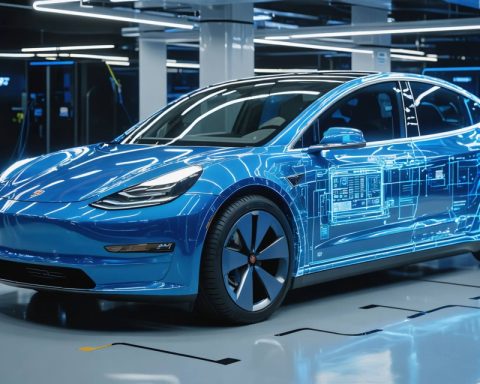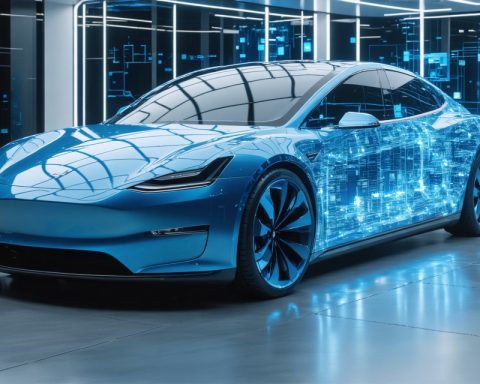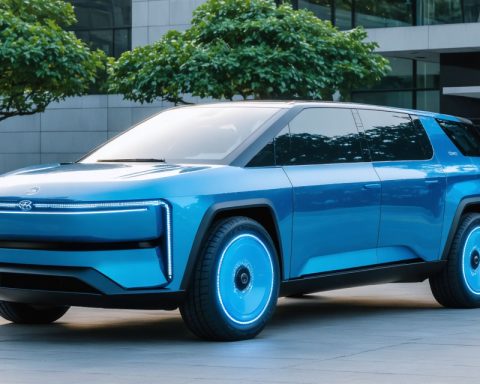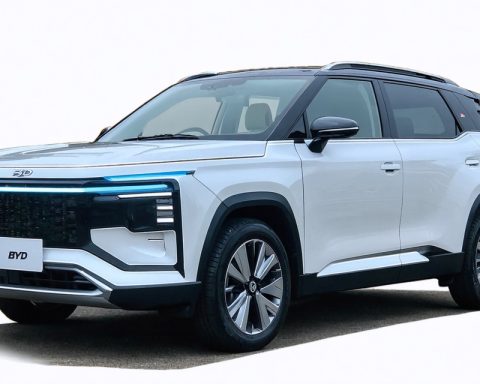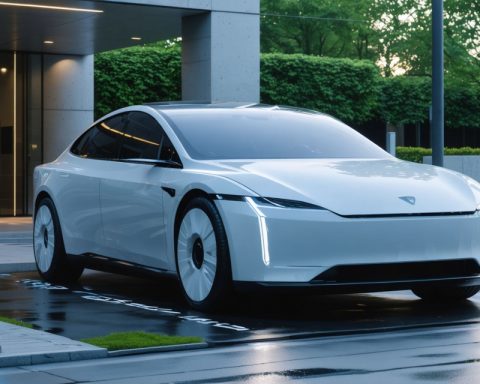- Porsche is pioneering an ambitious pilot project to recycle materials from used electric vehicle (EV) batteries.
- The initiative is set against the backdrop of increasing environmental awareness and resource scarcity, positioning Porsche at the forefront of sustainable innovation.
- The project uses a three-stage process beginning with mechanical grinding to extract valuable “black mass” from spent batteries.
- The black mass contains essential elements like nickel, cobalt, manganese, and lithium, crucial for modern battery technology.
- Approximately 65 tons of black mass have been produced, highlighting the potential for reduced environmental impact and closed-loop systems.
- Porsche’s endeavor marks a significant step towards integrating luxury, responsibility, and innovation, potentially setting a benchmark for circular economies in the automotive industry.
- This project underscores a revolutionary approach to recycling, redefining the life cycle of EV batteries and advancing automotive sustainability.
Porsche is embarking on an audacious quest to unlock the hidden value of electric vehicle (EV) batteries long past their prime. With the world racing towards sustainable innovation, the luxury carmaker has launched a groundbreaking pilot project to breathe new life into materials often forgotten in high-voltage EV batteries. This strategic maneuver places Porsche at the forefront of a growing movement to responsibly handle and recycle precious battery materials.
Against a backdrop of increasing environmental awareness and resource scarcity, Porsche’s latest venture envisions an eco-friendly cycle that mimics the elegance and efficiency of their vehicles. The company has ingeniously devised a three-stage pilot project aiming not only to probe the boundaries of potential recycling technologies but to set a benchmark for circular economies worldwide.
The first stage in this ambitious experiment has already taken off, setting complex gears in motion. Here, Porsche extracts spent high-voltage batteries from their development vehicles, breaking them down through a meticulous mechanical grinding process. What emerges is an enigmatic substance known as “black mass” — a granular mixture shimmering with possibility. This material glows with prospects as it contains vital elements like nickel, cobalt, manganese, and lithium, the bedrock of modern battery technology.
The project’s momentum builds as about 65 tons of this black mass have been produced thus far. In this black gold, Porsche sees more than just raw materials; they glimpse the future of automotive sustainability. Each particle is an opportunity to transform the way industries approach recycling, hinting at fewer environmental footprints and more closed-loop systems.
As this initiative gears up to explore its next stages, the broader industry watches closely. Porsche’s endeavor could well herald a new era where luxury, responsibility, and innovation intersect. This is no fleeting experiment but a step toward a horizon where environmental stewardship becomes as iconic as the Porsche badge itself.
The key takeaway? Porsche is driving towards a revolution in recycling, proving that what was once discarded can instead fuel the future. Through deliberate innovation, they are not just redefining the life cycle of EV batteries but reshaping what it means to be truly sustainable in the world of automotive engineering.
Porsche’s Revolutionary EV Battery Recycling Could Change the Future of Sustainability
Unveiling Porsche’s EV Battery Recycling Strategy
Porsche has embarked on an innovative journey to redefine the lifecycle of electric vehicle (EV) batteries. This ambitious project creates a sustainable model for recycling these energy sources and places Porsche at the forefront of eco-conscious automotive manufacturing.
Detailed Breakdown of Porsche’s Recycling Pilot
Stage One: The Birth of “Black Mass”
– Extraction Process: Porsche begins by retrieving spent high-voltage batteries from their development vehicles. The recycling method involves a precise mechanical grinding process that breaks down these batteries into a granular mixture known as “black mass.”
– Composition and Potential: This “black mass” contains essential materials like nickel, cobalt, manganese, and lithium, which are crucial for new battery production. These elements are invaluable due to their scarcity and the environmental cost of mining them from the earth.
Future Stages: Moving Beyond Conventional Recycling
– Porsche’s pilot project is not merely about extracting and using recycled materials but is also aimed at enhancing the efficiency and sustainability of recycling technologies. Future stages may explore chemical extraction methods to further purify and separate these valuable elements.
Pressing Questions Answered
Why Is Porsche Focusing on Battery Recycling?
With increasing pressure on natural resources and environmental concerns, recycling battery materials can significantly reduce ecological footprints. It offers a closed-loop system where old batteries fuel new creations, minimizing waste and reliance on new mining.
What Are the Pros and Cons of Battery Recycling?
– Pros:
– Reduction in environmental impact
– Decrease in dependency on raw material extraction
– Cost savings in battery production
– Cons:
– High initial setup and operational costs
– Technological challenges in separating mixed materials economically
How Does Porsche’s Initiative Compare to Industry Trends?
Globally, the EV industry is striving for enhanced sustainability. Companies like Tesla and Nissan have also explored battery recycling, yet Porsche’s commitment to an elegant and efficient cycle sets a benchmark in luxury automotive circles.
Industry Insights and Predictions
– Market Forecast: The global EV battery recycling market is expected to grow significantly in the coming decade. Porsche’s investment and innovation might accelerate this trend and set new standards across the industry.
– Sustainability Influence: As consumer awareness grows, more automotive companies may invest in sustainable practices, adopting similar models to Porsche’s pilot project.
Recommendations for Eco-Conscious Car Owners
– Choose Manufacturers with Sustainable Practices: Opt for brands that pioneer in environmental stewardship, offering peace of mind regarding ecological impact.
– Stay Informed: Follow advancements in recycling and technological innovations to make informed purchasing decisions.
Quick Tips
– Be an advocate for sustainability by choosing vehicles with transparent recycling programs.
– Consider the entire lifecycle of a vehicle, from manufacturing to recycling, to understand its environmental impact.
For further reading on Porsche’s sustainability initiatives, visit the official Porsche website.
By embracing circular economy principles, Porsche is not just participating in the environmental movement—it’s leading it. Join this revolution by supporting forward-thinking innovations that ensure a cleaner, greener future for all.


